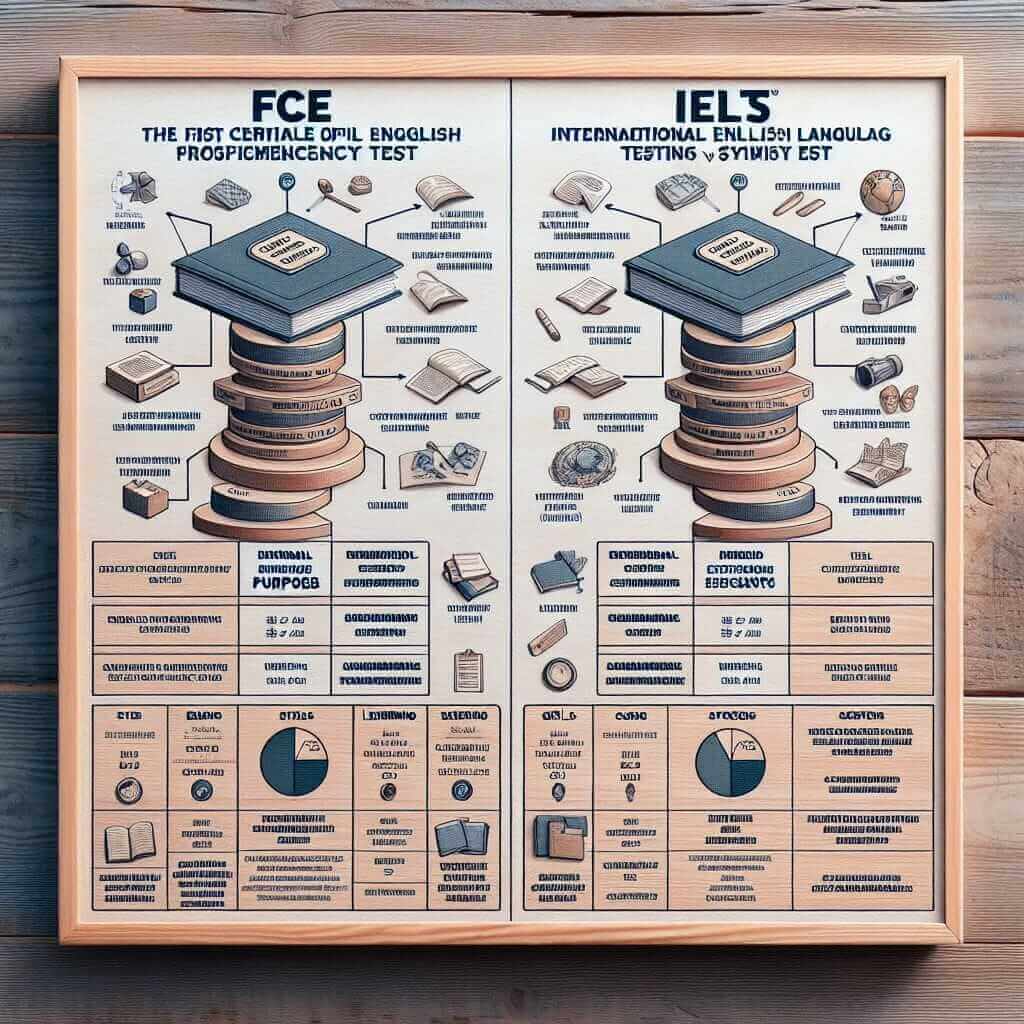Choosing the right English proficiency test can be a daunting task, especially with options like the FCE (First Certificate in English) and IELTS (International English Language Testing System) available. As an IELTS instructor with over 20 years of experience, I often get asked: “Which one is better: FCE or IELTS?”
The truth is, there’s no one-size-fits-all answer. The best exam for you depends on your individual goals and circumstances. Let’s delve deeper into what each exam entails to help you make an informed decision.
Understanding the FCE and IELTS Exams
What is the FCE exam?
The FCE, developed by Cambridge Assessment English, certifies upper-intermediate English proficiency (CEFR level B2). It demonstrates your ability to live and work independently in English-speaking environments and handle day-to-day communication confidently.
What is the IELTS exam?
The IELTS, jointly managed by the British Council, IDP Education, and Cambridge Assessment English, evaluates your English language skills for academic, professional, or migration purposes. It assesses your Listening, Reading, Writing, and Speaking abilities across two test versions: Academic and General Training.
Key Differences: FCE vs IELTS
While both exams assess your English skills, they differ significantly in their formats, scoring systems, and purposes.
1. Purpose:
- FCE: Primarily for learners who want to prove their general English proficiency for work or study purposes.
- IELTS: Designed for individuals seeking to study, work, or migrate to countries where English is the primary language of communication.
2. Format and Content:
- FCE: Consists of four papers: Reading & Use of English, Writing, Listening, and Speaking. It focuses on everyday English and practical communication skills.
- IELTS: Also comprises four papers: Listening, Reading, Writing, and Speaking. However, it offers two versions: Academic (for higher education and professional registration) and General Training (for work experience and migration).
3. Scoring System:
- FCE: Uses a graded scoring system aligned with the CEFR levels (A2 to C2), with a “Pass” awarded at grade C or above.
- IELTS: Employs a band score system ranging from 0 to 9 for each skill and an overall band score. Scores are not categorized as “Pass” or “Fail”; institutions set their own band requirements.

Which Exam Should You Take?
Consider the following factors to determine the most suitable exam for you:
- Your reason for taking the exam: Are you aiming for university admission, professional registration, or simply want to assess your general English level?
- Your required English level: Check the specific English language requirements of the institutions or organizations you’re targeting.
- Your preferred exam format: Some individuals may find the FCE’s focus on everyday English more relatable, while others might prefer the IELTS’s academic or work-related contexts.
Tips for Choosing the Right Exam
- Research thoroughly: Explore both exams’ official websites, sample materials, and test-taker experiences to gain a comprehensive understanding.
- Seek expert guidance: Consult with your English teacher, test preparation center, or academic advisor to receive personalized recommendations.
- Consider your strengths and weaknesses: Evaluate your proficiency in different English skills and choose the exam that aligns best with your abilities.
Conclusion
Ultimately, the decision of whether to take the FCE or IELTS is deeply personal and depends on your specific goals and circumstances. By carefully considering the key differences and seeking expert advice, you can confidently choose the exam that best paves your path towards achieving your aspirations. Remember, the key to success lies in thorough preparation, regardless of the exam you select!